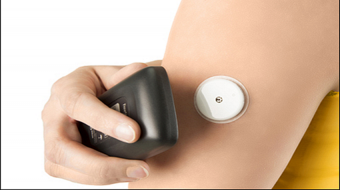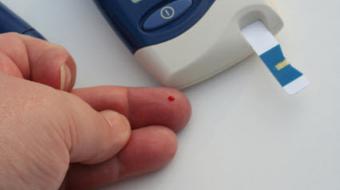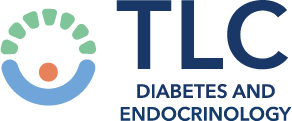Blood Glucose Monitoring

Knowledge is Power.
True/False - Quiz: Do You Understand Blood Glucose Monitoring?
Information - Blood Glucose Monitoring
 Glucose is a type of sugar we get from foods, and as it travels through the bloodstream to the cells, it’s called blood sugar or blood glucose. Glucose is found mainly in foods rich in carbohydrates, like fruit, bread, pasta and yogurt. The body uses glucose for energy. Insulin is a hormone in the body that moves the glucose from your blood into the cells.
Glucose is a type of sugar we get from foods, and as it travels through the bloodstream to the cells, it’s called blood sugar or blood glucose. Glucose is found mainly in foods rich in carbohydrates, like fruit, bread, pasta and yogurt. The body uses glucose for energy. Insulin is a hormone in the body that moves the glucose from your blood into the cells.
How to Manage Blood Glucose Levels
If you have type 1 or type 2 diabetes, you either can’t produce insulin or can’t use it properly, and glucose builds up in the blood. Blood glucose monitoring is an important part of any diabetes management plan. If you have diabetes, it’s important to check your blood sugar levels as prescribed by your doctor. This will determine if you have low or high blood sugar and show you how your medication and lifestyle are affecting your blood sugar levels. The goal of blood glucose monitoring in diabetes is to keep your blood sugar as close to target range as possible. To do so, you need to eat healthy foods and stay active. Some patients also require diabetes medications. You’ll work with your primary care provider or endocrinologist to determine how often you need to check your blood sugar levels.
How to Monitor Blood Glucose Levels
You’ll need to get a blood glucose meter from your pharmacist or diabetes educator and learn how to use it. A traditional blood glucose meter uses lancets to puncture your skin, drawing a drop of blood that you then test on a blood glucose strip. A flash glucose meter (FGM) is a newer device that doesn’t require you to prick your finger – it uses sensor scans. Some people use a sensor inserted under the skin, called a continuous glucose monitor (CGM), to check blood sugar levels.
 All people with type 1 diabetes and some with type 2 diabetes require insulin to regulate blood sugar levels. People with diabetes take insulin by a syringe, injection pen or an insulin pump. Types of insulin to treat diabetes include:
All people with type 1 diabetes and some with type 2 diabetes require insulin to regulate blood sugar levels. People with diabetes take insulin by a syringe, injection pen or an insulin pump. Types of insulin to treat diabetes include:
• Rapid-acting insulin, which starts working approximately 15 minutes after injection and peaks at approximately 1 hour (continues to work for 2 to 4 hours)
• Short-acting insulin, which starts working approximately 30 minutes after injection and peaks at approximately 2 to 3 hours (continues to work for 3 to 6 hours)
• Intermediate-acting insulin, which starts working approximately 2 to 4 hours after injection and peaks approximately 4 to 12 hours later (continues to work for 12-18 hours)
• Long-acting insulin, which starts working after several hours after injection and works for approximately 24 hours
Your diabetes treatment plan, including blood glucose monitoring and insulin, depends on factors such as your age, risk factors, current health and other conditions.
Talk to your endocrinologist if you'd like more information on blood glucose monitoring.
Visit HealthChoicesFirst.com for more videos and resources on diabetes.
Print this Action Plan and check off items that you want to discuss with your healthcare provider
-
Blood glucose monitoring is an important part of any diabetes management plan. If you have diabetes, it’s important to check your blood sugar levels as prescribed by your doctor.
-
You’ll need to get a blood glucose meter from your pharmacist or diabetes educator and learn how to use it. A traditional blood glucose meter uses lancets to puncture your skin, drawing a drop of blood that you then test on a blood glucose strip.
-
A flash glucose meter (FGM) is a newer device that doesn’t require you to prick your finger – it uses sensor scans. Some people use a sensor inserted under the skin, called a continuous glucose monitor (CGM), to check blood sugar levels.
-
All people with type 1 diabetes and some with type 2 diabetes require insulin to regulate blood sugar levels. People with diabetes take insulin by a syringe, injection pen or an insulin pump.
-
Your diabetes treatment plan, including blood glucose monitoring and insulin, depends on factors such as your age, risk factors, current health and other conditions.



